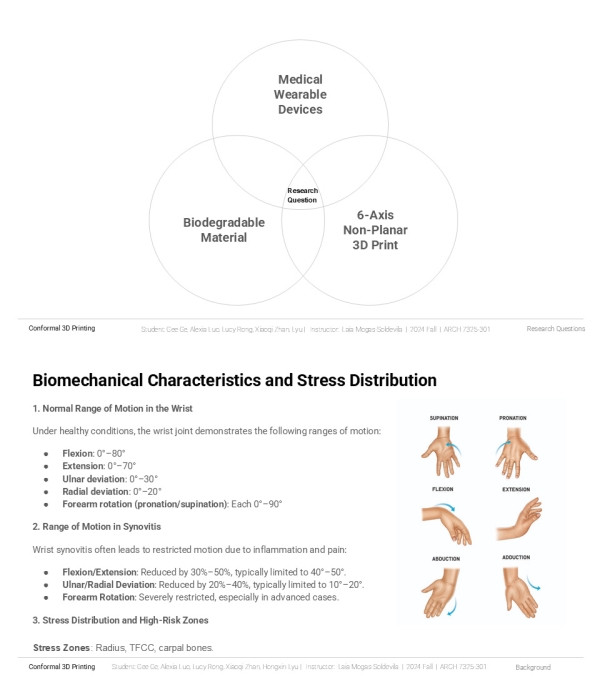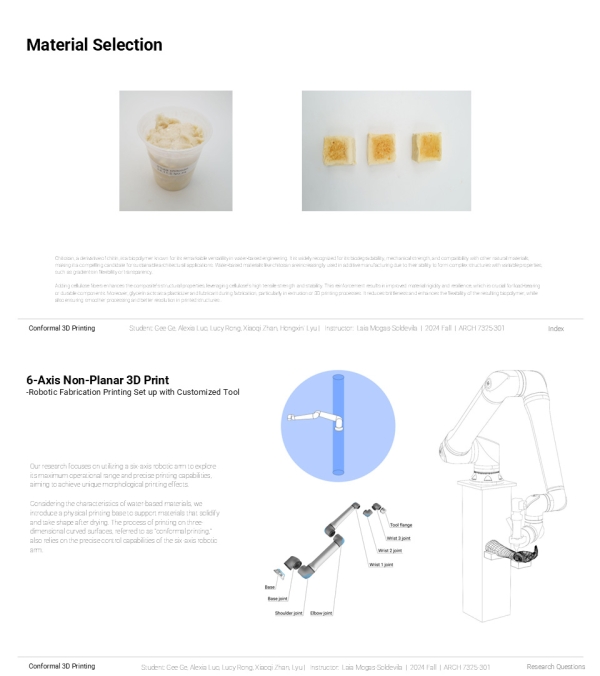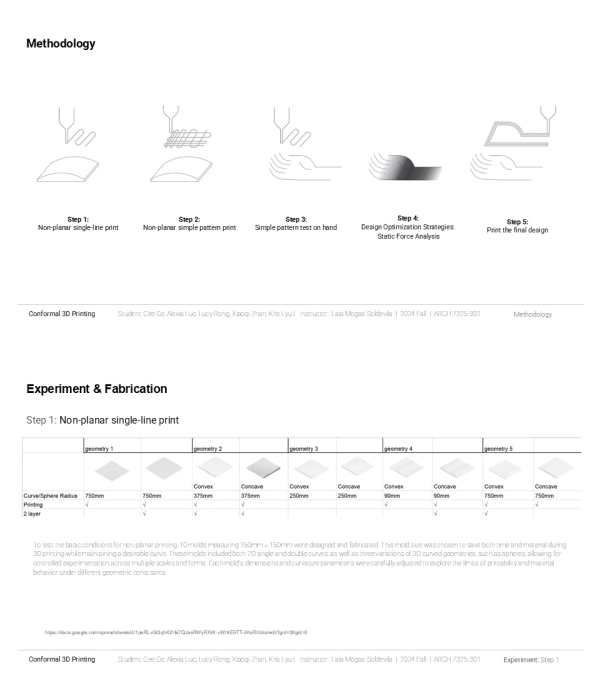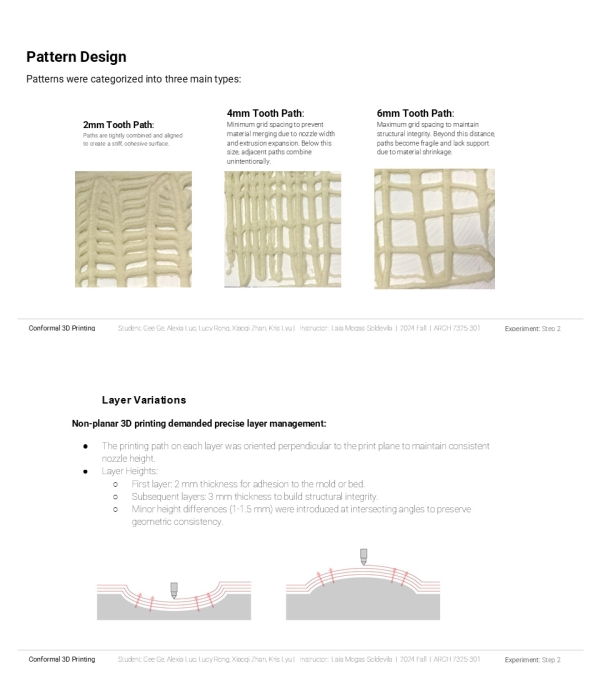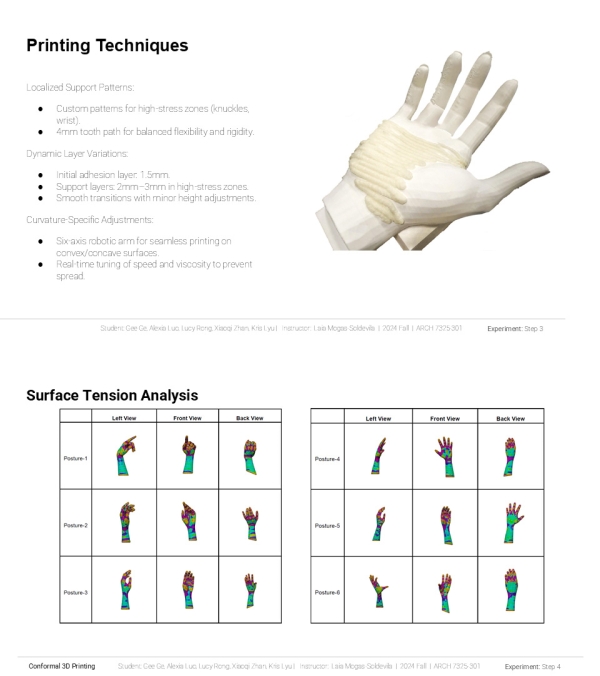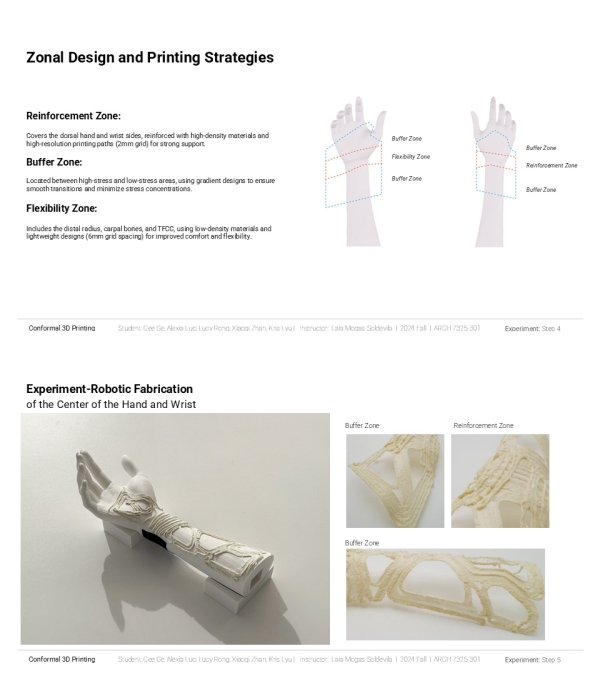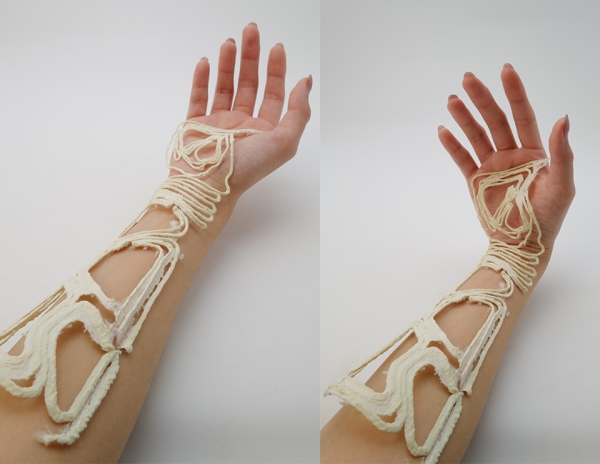Bodily Non-Conformal Printing
- Hongxin Lyu
- Xiaoqi Zhan
- Yuezhu Rong
- Jing Ge
- Alexia Luo
This research explores the use of a six-axis robotic arm for conformal and non-planar 3D printing with water-based biomaterials to create ligament braces with variable densities and customizable flexibility or stiffness. Focusing on wrist synovitis as a case study, the project aims to design tailored braces that provide localized support and mobility.
It learns from existing brace designs while addressing the limitations of conventional non-planar 3D printing, which relies on rigid materials like PLA or resin. By using recyclable water-based materials, this research combines precision robotics with sustainable, skin-friendly fabrication methods.
To do so, we utilize the robotic arm to execute precise multi-layered printing on complex surfaces, incorporating textured designs and layered paths to achieve varying stiffness levels. A physical printing base supports the material during drying and solidification. Preliminary results show that specialized textures and layered trajectories enhance the ability to create custom, localized medical devices. The impact of this research lies in advancing sustainable 3D printing technologies for personalized medical devices, offering a scalable solution for frequent-use, recyclable braces tailored to individual needs.
Dr. Laia Mogas-Soldevila


